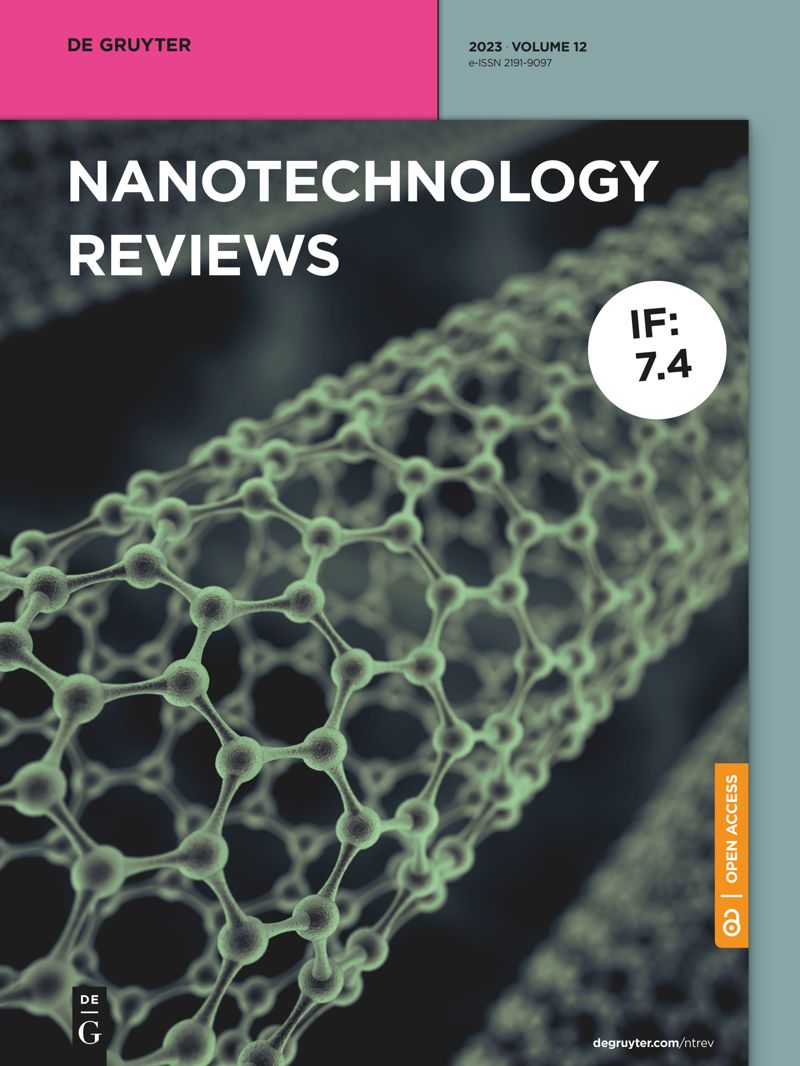3D printing of porous Ti6Al4V bone tissue engineering scaffold and surface anodization preparation of nanotubes to enhance its biological property
IF 6.1
3区 材料科学
Q1 CHEMISTRY, MULTIDISCIPLINARY
引用次数: 0
Abstract
Abstract Porous structures and surface morphology of bone tissue scaffolds play an important role in improving the biocompatibility and antibacterial properties for bone repair. In this study, we investigated the effect of different anodic oxidation parameters on the nanotubes morphology in 3D printed porous titanium scaffolds. Micron-scale pores were fabricated by 3D printing first, and then the nano-scale tubes were obtained via anodizing treatments. The results demonstrated that the morphology of the nanotubes depended on the anodic oxidation time and voltage, respectively. Longer anodic oxidation led to the formation of circle-like nanotubes, and the diameter of the nanotubes increased with the voltage. The scaffolds anodized at 30 V showed the best cell proliferation potential. The presence of nanotubes on the surface of scaffold altered the adhesion of bacteria so that it improved the antibacterial properties of scaffold. The formation of nanotubes improved the drug-loading ability of the scaffold, which are used for loading of minocycline antibacterial drugs. The proposed 3D printed porous Ti6Al4V scaffold with nanotubes surface modification showed obvious antibacterial effect, which is expected to have a promising application in antibacterial bone prosthesis.多孔Ti6Al4V骨组织工程支架的3D打印及表面阳极氧化制备纳米管增强其生物性能
骨组织支架的多孔结构和表面形态对提高骨修复的生物相容性和抗菌性能起着重要作用。在这项研究中,我们研究了不同阳极氧化参数对3D打印多孔钛支架纳米管形貌的影响。首先采用3D打印技术制备微米级孔,然后通过阳极氧化处理得到纳米级管。结果表明,纳米管的形貌分别与阳极氧化时间和氧化电压有关。阳极氧化时间越长,形成的纳米管呈圆形,且纳米管直径随电压升高而增大。30 V阳极处理的支架细胞增殖能力最强。纳米管在支架表面的存在改变了细菌的粘附,从而提高了支架的抗菌性能。纳米管的形成提高了支架的载药能力,可用于米诺环素类抗菌药物的载药。所提出的纳米管表面改性的3D打印多孔Ti6Al4V支架具有明显的抗菌效果,有望在抗菌骨假体中有很好的应用前景。
本文章由计算机程序翻译,如有差异,请以英文原文为准。
求助全文
约1分钟内获得全文
求助全文
来源期刊

Nanotechnology Reviews
CHEMISTRY, MULTIDISCIPLINARY-NANOSCIENCE & NANOTECHNOLOGY
CiteScore
11.40
自引率
13.50%
发文量
137
审稿时长
7 weeks
期刊介绍:
The bimonthly journal Nanotechnology Reviews provides a platform for scientists and engineers of all involved disciplines to exchange important recent research on fundamental as well as applied aspects. While expert reviews provide a state of the art assessment on a specific topic, research highlight contributions present most recent and novel findings.
In addition to technical contributions, Nanotechnology Reviews publishes articles on implications of nanotechnology for society, environment, education, intellectual property, industry, and politics.
 求助内容:
求助内容: 应助结果提醒方式:
应助结果提醒方式:


